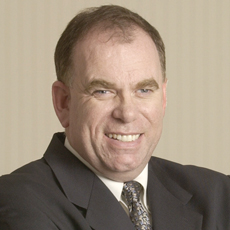
President John F. Kennedy signed the Community Mental Health Act 50 years ago today. Half a century later, the landmark measure’s legacy is both troubled and troubling.
Hailed as a way to transform the way people with mental illness are taken care of, the law was supposed to help build mental health centers accessible to all. The result would be that those with mental health challenges could be treated at home, rather than state institutions. At least, that was the original idea.
Unfortunately, only about half of the proposed centers were actually built. None of them were fully funded, and the act didn’t ensure long-term payments. Many of the afflicted ended being put in nursing homes, a practice that continues under the radar in many communities today.
A major blow to the law came during the Reagan administration, when the remaining funding for the act was converted into a mental-health block grant for states. With the freedom to spend the money as they wished, many states essentially told people with mental illnesses that while they didn’t have to go home, they had to vamoose from state-paid care settings.
“The goals of deinstitutionalization were perverted,” said former U.S. Rep. Patrick Kennedy, the president’s nephew.
Small surprise that many of the sickest turned to lives marked by drug abuse and petty crime. Care to guess where that road often ended? These days, the nation’s three largest providers of mental health services are jails: Cook County in Chicago, Los Angeles County, and Rikers Island in New York.
Cook County Sheriff’s Office spokesman Ben Breit recently told the Huffington Post that mentally ill inmates make up 25% percent to 30% percent of the jail’s population at any given time.
“Most of guys that are in here are on goofy charges: Drugs, retail theft, criminal trespass, like when they’re looking for a place to sleep; for the women, prostitution. They’re locked up and put on bonds they couldn’t conceivably make, even though it’s a thousand bucks,” Breit said.
There’s no doubting that inadequate funding is a huge part of the mental health services problem facing our nation. But as anyone who has dealt directly with a mentally ill person for an extended period can tell you, there’s more to the story. Much like people with Alzheimer’s, those with mental illness can put people in their lives through levels of Hell that Dante never considered.
Many caregivers get so frayed and fed up by the antics that they become too exhausted to keep trying.
But it’s not just caregivers who pay dearly. Several recent deadly mass shootings, including at the Washington Navy Yard and a Colorado movie theater, were allegedly carried out by men who were not being adequately treated for serious mental illnesses.
So what’s to be done? If only there were an easy answer. Clearly, those with mental illnesses need more help. But with no real lobbying clout, few family members petitioning on their half, a general perception that they are a menace to society, and even fewer long-term prospects, those with mental illness are not exactly positioned for help at the front of the line.
Nor are state and federal coffers overflowing with extra money to deliver the kind of assistance that’s needed. But that does not mean all is lost.
Former Rep. Kennedy gathered advocates in Boston on Thursday for the Kennedy Forum. He said he hopes the meeting will help remove the stigma surrounding mental illness. It may not be much, but it’s a start.
Let’s just hope it leads to more than good intentions.
John O’Connor is Editorial Director at McKnight’s.




